Softland Billing Machines
Product Details:
- Installation Manual
- Product Type Billing Machine
- Weight As per available Grams (g)
- Voltage 220-240 Volt (v)
- Usage Industrial
- Color Black
- Click to View more
Softland Billing Machines Price And Quantity
- 9500.0 INR/Unit
- 1 Unit
Softland Billing Machines Product Specifications
- Black
- Manual
- Billing Machine
- As per available Grams (g)
- Industrial
- 220-240 Volt (v)
Softland Billing Machines Trade Information
- Cash in Advance (CID)
- 10 Unit Per Month
- 2-7 Days
- All India
Product Description
Basic Details of Softland Billing Machines:
1. Purpose:
-
Transaction Management: Softland billing machines are primarily used to process sales transactions, generate invoices, and print receipts.
-
Inventory Control: These machines are often integrated with inventory management systems to track stock levels, manage product sales, and update inventory automatically as items are sold.
-
Accounting & Reporting: Softland Billing Machines provide business owners with detailed financial reports, helping with accounting, tax calculation, and overall business analysis.
-
Customer Management: They can store customer information for generating repeat sales and maintaining loyalty programs.
2. Key Features:
-
POS Integration: Softland Billing Machines work with Softland POS software, allowing for complete integration with other business management tools like accounting, CRM (Customer Relationship Management), and inventory systems.
-
Barcode Scanning: These billing machines typically support barcode scanners for fast item identification and billing, reducing manual entry errors.
-
Receipt Printing: The machines are connected to thermal printers that provide fast, clear, and professional receipts for customers.
-
Payment Integration: They often support multiple payment methods, including cash, debit/credit cards, mobile payments, and digital wallets.
-
User-Friendly Interface: Softland billing machines feature touchscreen interfaces or keypads that are intuitive and easy to use, reducing training time for staff.
-
Sales and Transaction Reporting: The machines generate sales reports that can be used to track daily, weekly, or monthly sales, analyze performance, and calculate taxes and discounts.
-
Barcode/QR Code Support: Supports barcodes and QR codes for quick item lookup, promotions, and loyalty programs.
-
Cloud Integration (optional): Some models offer cloud-based data storage, allowing for secure access to billing and transaction data from multiple locations or remote devices.
-
Customizable Invoices: Billing machines can be set up to generate customized invoices with company logos, payment terms, and customer details.
3. Applications:
-
Retail Stores: Used for managing product sales, inventory, and customer transactions. These systems are particularly useful in grocery stores, supermarkets, clothing outlets, and other retail environments.
-
Restaurants & Hospitality: In restaurants and cafes, Softland Billing Machines handle order processing, billing, and payments. They integrate with kitchen management systems to streamline food delivery.
-
Service Industries: Businesses in industries like salons, spas, and repair services can use these billing machines to handle service charges, customer payments, and scheduling.
-
Wholesale & Distribution: Billing machines can also be used by wholesalers and distributors to generate invoices and manage bulk orders.
4. Advantages:
-
Efficiency: Softland Billing Machines reduce the time taken to process transactions, providing faster service to customers.
-
Accuracy: Automated billing reduces the risk of human error, ensuring accurate calculations of taxes, discounts, and total amounts.
-
Inventory Management: Integrated systems allow for automatic updates to inventory when sales are made, reducing the chances of stockouts or overstocking.
-
Customer Experience: With quick billing and support for multiple payment methods, these machines improve the overall customer experience.
-
Real-Time Reporting: These machines offer real-time access to sales data and financial reports, helping managers make informed decisions.
-
Tax Compliance: Softland systems typically include taxation modules that ensure compliance with local tax laws, making it easier for businesses to manage their tax obligations.
-
Cloud Integration: Cloud-based options allow business owners to monitor operations remotely and access reports or data from anywhere.
5. Limitations:
-
Cost: The initial setup for Softland billing machines may be higher, particularly for businesses that require additional hardware (e.g., barcode scanners, receipt printers, etc.).
-
Dependence on Software: The machines depend on Softland POS software, so any issues with the software can impact the entire system.
-
Maintenance: Regular maintenance is required to ensure the hardware (scanners, printers, etc.) works efficiently and doesn't break down during peak business hours.
6. Types of Softland Billing Machines:
-
Standalone POS Terminals: These machines typically include a cash register, barcode scanner, and receipt printer. They are often designed for smaller operations like retail stores or food outlets.
-
Touchscreen POS Systems: A more advanced option, these systems feature a touchscreen interface for easy navigation. They may come with integrated inventory management, CRM, and reporting tools.
-
Mobile POS Systems: Softland also offers mobile solutions that can work on smartphones or tablets, useful for small businesses or restaurants that require mobility.
7. Installation & Support:
-
Installation: Setting up Softland Billing Machines involves configuring both the hardware and software, ensuring proper integration with inventory systems and payment gateways.
-
Technical Support: Softland typically provides technical support and maintenance services to help businesses troubleshoot issues and ensure smooth operation.
-
Training: Businesses may need to provide training to employees on how to operate the system effectively, ensuring they are comfortable using the software and hardware components.

Price:
- 50
- 100
- 200
- 250
- 500
- 1000+

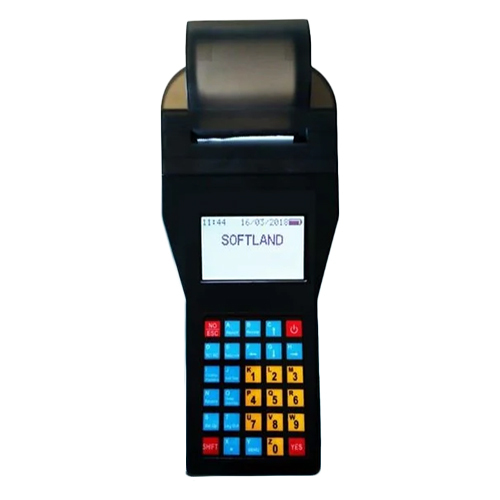

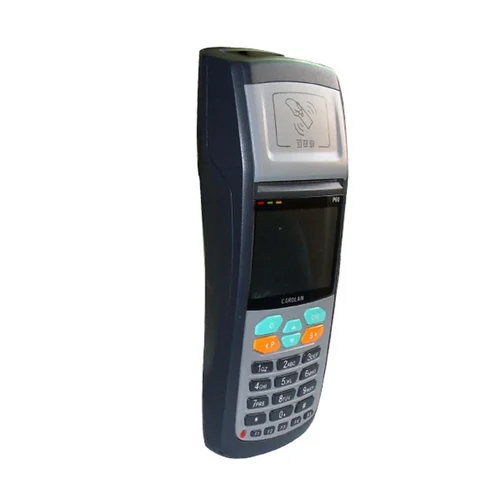
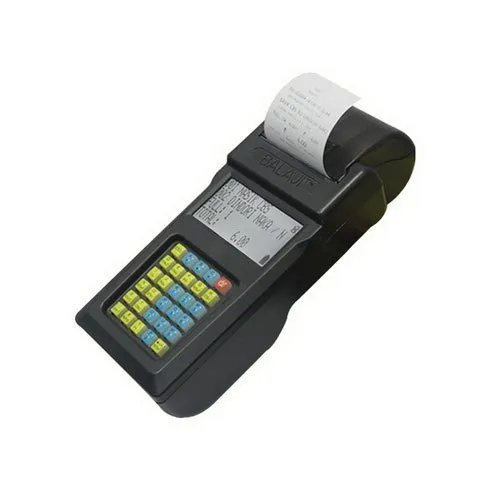
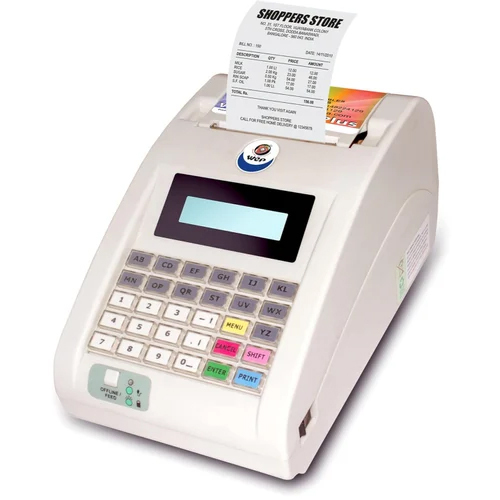
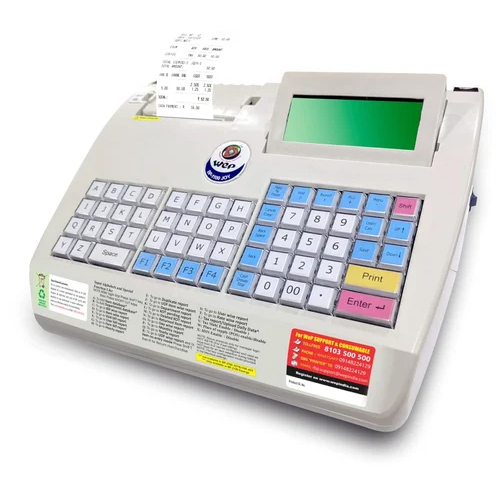


 Send Inquiry
Send Inquiry Call Me Free
Call Me Free